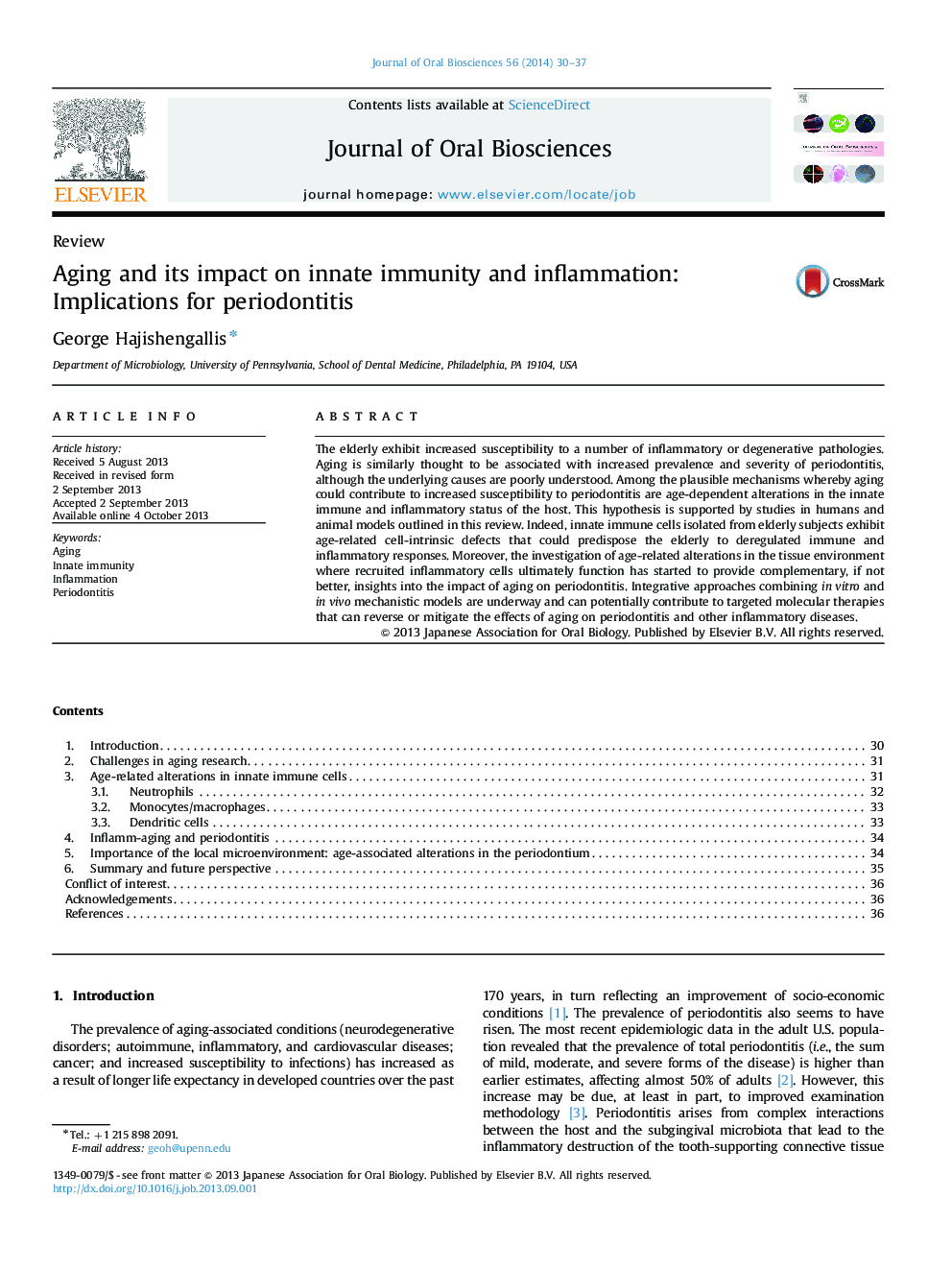| Article ID | Journal | Published Year | Pages | File Type |
|---|---|---|---|---|
| 10163652 | Journal of Oral Biosciences | 2014 | 8 Pages |
Abstract
The elderly exhibit increased susceptibility to a number of inflammatory or degenerative pathologies. Aging is similarly thought to be associated with increased prevalence and severity of periodontitis, although the underlying causes are poorly understood. Among the plausible mechanisms whereby aging could contribute to increased susceptibility to periodontitis are age-dependent alterations in the innate immune and inflammatory status of the host. This hypothesis is supported by studies in humans and animal models outlined in this review. Indeed, innate immune cells isolated from elderly subjects exhibit age-related cell-intrinsic defects that could predispose the elderly to deregulated immune and inflammatory responses. Moreover, the investigation of age-related alterations in the tissue environment where recruited inflammatory cells ultimately function has started to provide complementary, if not better, insights into the impact of aging on periodontitis. Integrative approaches combining in vitro and in vivo mechanistic models are underway and can potentially contribute to targeted molecular therapies that can reverse or mitigate the effects of aging on periodontitis and other inflammatory diseases.
Related Topics
Life Sciences
Biochemistry, Genetics and Molecular Biology
Clinical Biochemistry
Authors
George Hajishengallis,
